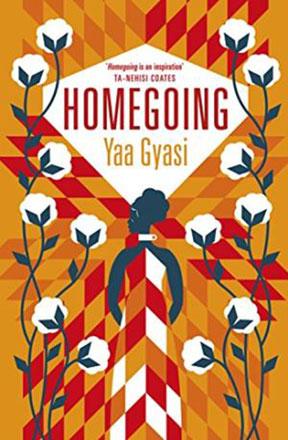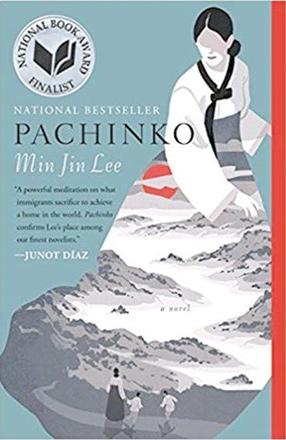You are here
The risks of being human
By Sally Bland - Nov 07,2021 - Last updated at Nov 07,2021

Transcendent Kingdom
Yaa Gyasi
New York: Vintage Books, 2021
Pp. 290
“Transcendent Kingdom” is Ghanaian-American author Yaa Gyasi’s second novel. Except for the emotionally-charged writing and intriguing characters, it could not be more different from her first novel. “Homegoing” was of epic proportions, rotating between Africa and the US to trace the lives of an African family and their descendants from the 1700s onwards, and chronicling the long-lasting, devastating effects of the slave trade.
In contrast, “Transcendent Kingdom” is set entirely in the present day and focuses on the interior lives of the main characters. Racism is more subtly depicted in “Transcendent Kingdom” but is still a pervasive, negative factor in Black people’s lives, though it may not seem like the main problem at first. Many other issues are at play — science, religion and philosophy of life.
The narrator, Gifty, is a six-year PhD candidate in neuroscience at the Stanford University School of Medicine. She is painfully aware that her research is not of interest to most people, but in addition to its academic value, it is vital to her understanding of herself, her family and the world. Family is the key world here. The child of immigrants from Ghana who settled in Alabama, Gifty once had a father and brother. But her mother proved to be the only one with the excessive work ethic and psychological fortitude required to work overtime and underpaid as required to make it in America. Or so it seemed. First, Gifty’s father returned to Ghana. Then, even more painful, her popular, athletic brother fell victim to the opioid epidemic and died of a heroin overdose. With the family reduced from four to two, her mother’s fortitude cracked and she succumbed to a deep depression.
Though raised in the Pentecostal Church where her mother was a devotee, Gifty became more inclined towards science as she matured. She was nearing the completion of her research when her mother’s break-down reoccurred. This is the now-time of the novel and the rest of the story is told in flashbacks — Gifty’s childhood, how she was sent to Ghana for the summer when her mother suffered her first breakdown, how she tailored her academic path to her family concerns, leading to research in the neural circuits of reward-seeking behaviour, explored via experiments with rats. Through this research, she hopes to understand her brother’s addiction and her mother’s depression. At the same time, Gifty begins to doubt that science alone can heal people, leaving the door open to an undefined spiritual dimension in her life and the novel.
Gifty is fascinated with the brain, the organ that allows Homo sapiens to believe that they have transcended their Kingdom: “That belief, that transcendence, was held within this organ itself. Infinite, unknowable, soulful, perhaps even magical. I had traded the Pentecostalism of my childhood for this new religion, this new quest, knowing that I would never fully know.” (p. 21)
Within this family story, Gyasi covers a range of contemporary realities. Her mother works as a caregiver, typical employment for female immigrants and people of colour in the US today. For years, she cares for an old white man who feels no compunction about directing racist slurs at her. Such work is almost synonymous with night shifts, often leading to addiction to sleeping pills. This is a new type of immigrant story, being set mostly in the semi-rural American South where Gifty (and the author) grew up, whereas earlier immigrant stories were usually urban-based. Gyasi also raises current, hotly-debated health issues via Gifty’s medical insight: “Most people’s immune systems are highly capable and efficient. Overprescription is a huge problem in this country, and if we don’t take charge of our own health, we’re susceptible to all kinds of manipulation from pharmaceutical companies who profit off of keeping us ill… “(p. 124)
Questions of identity, culture and assimilation are integral to the plot, playing a role in the demise of both Gifty’s mother and brother, and in Gifty’s own vacillation between science and faith. In the case of her mother, who spoke three languages, these issues are particularly salient. As she descended into a helpless depression, it was shocking for Gifty to see how her mother, whom she had regarded as strong, even fearsome, “shrank down to someone I could hardly recognise. And I don’t think she did this because she wanted to. I think, rather, that she just never figured out how to translate who she really was into this new language”. (p. 136)
From the problems of the immigrant experience, Gifty goes on to pose existential questions about human beings as such: “The only animal in the known world that is willing to try something new, fun, pointless, dangerous, thrilling, stupid, even if we might die in the trying.” (p. 243)
Gyasi’s characters are impetuous, inconsistent, full of contradictions and exasperating, which makes it hard to anticipate the conclusion. One keeps on turning pages to find out if Gifty can reconcile herself to the human condition that she so poignantly describes. Once again, Gyasi has created a beautifully-written, thought-provoking novel, and shown herself to be a versatile storyteller. She restores the humanity and dignity of immigrants by showing that they face the full range of human dilemmas, not only the special problems of the outsider.
Related Articles
Pachinko Min Jin LeeNew York: Grand Central Publishing, 2017, 479 pp Pachinko, a cross between slot machine and pinball, gives its

















